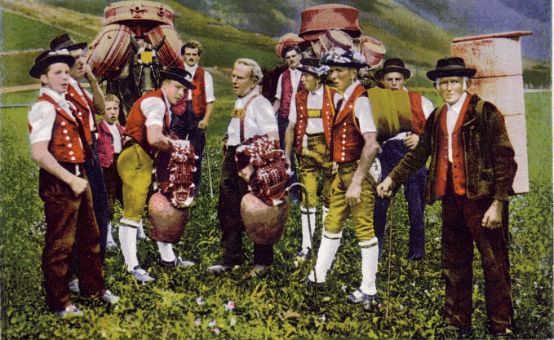Natural yodel becomes an object of study
The Roothuus Gonten and the Lucerne University of Applied Sciences and Arts (HSLU) are conducting a music cognitive
Study on Appenzell and Toggenburg natural yodeling. The focus is on the analysis of a collection of 1400 natural yodels and a survey of active yodelers.

The aim of the study is to shed light on natural yodels from the region around the Alpstein in terms of music cognition and ethnomusicology. The research team wants to provide information on how this large number of natural yodels are perceived, differentiated, internalized and passed on from one person to the next. According to Raymond Ammann from the HSLU, this has not yet been explained in view of the large number of yodel melodies and the almost exclusively oral tradition.
The researchers are therefore investigating, among other things, which musical characteristics - melody lines, rhythmic structures, harmonies, timbres and so on - are responsible for yodelers being able to remember a particular melody. The circumstances under which a natural yodel is stored in memory as a variant of an already known melody or as an independent form will also be investigated.
The basis of the three-year research project, which is supported by the Swiss National Science Foundation, is the collection of around 1,400 recorded natural yodels and sound documents from the Roothuus Gonten. This collection is recorded in a database compiled by the Appenzell folk musician and teacher Erwin Sager. The music analysis by the Lucerne University of Applied Sciences and Arts is supplemented by literature research and numerous individual interviews with active yodelers. The results of the research will be published in summer 2021 in the form of a book and a documentary film.
Further information on the project is available at: www.hslu.ch/naturjodel








